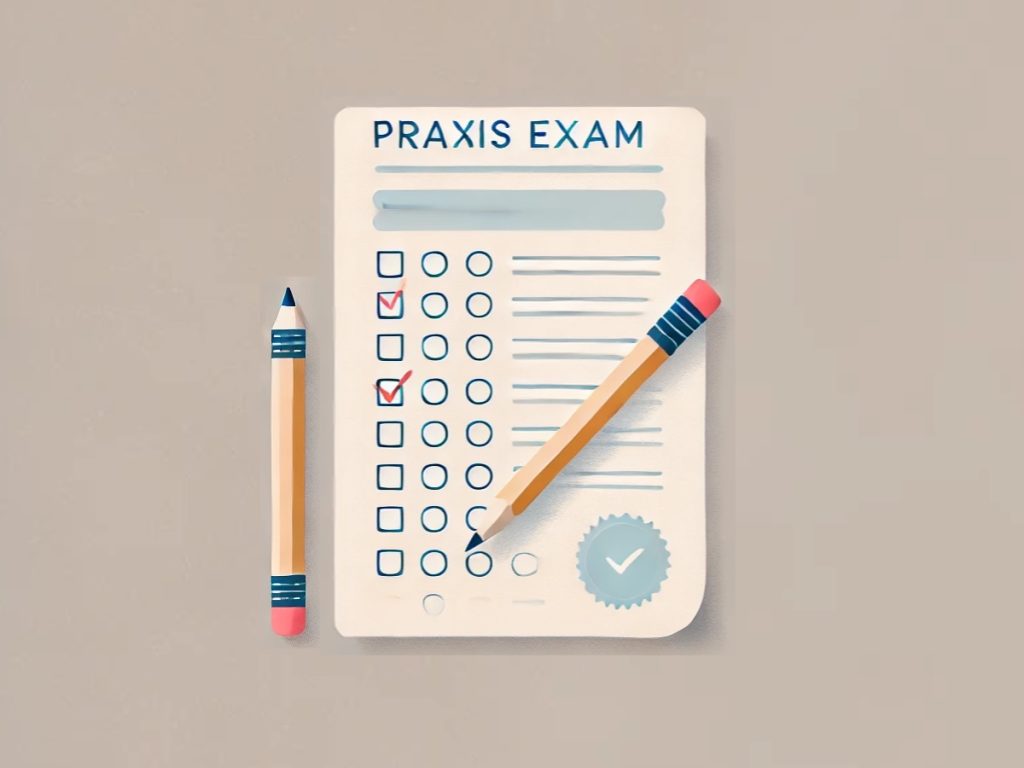How to Become a Forensic Speech-Language Pathologist
The process to become a forensic speech-language pathologist requires establishing a solid foundation of speech pathology knowledge followed by specialization in legal or criminal justice applications. Forensic SLPs who hold licensure work as expert witnesses or consultants to provide cases related to communication disorders such as malpractice lawsuits and insurance disputes and personal injury claims and special education hearings.
Forensic speech pathologists need expertise in speech and language disorder diagnosis and treatment alongside the ability to present findings in simple language that court officials can understand. The following steps lead to a career that combines communication science with the justice system for those who are passionate about this unique field.
Step 1 – Earn a Speech Pathology Bachelor’s Degree
Your educational path starts with obtaining a bachelor’s degree in speech pathology which should be in speech and hearing science or a related field. You will need to earn a speech-language pathology master’s degree eventually so it is essential to get an appropriate undergraduate degree. Students who plan to become speech pathologists typically choose Communication Sciences and Disorders (CSD) or comparable programs which provide foundational knowledge about speech and language and hearing. The foundation of your studies will include essential prerequisite classes about linguistics, anatomy psychology and acoustics.
The acceptance of students into graduate programs depends on their undergraduate major so students who have not decided on their undergraduate program should choose fields that establish strong human communication or health foundations (such as psychology, education, or linguistics together with CSD).
You can become an speech-language pathologist with a different bachelor’s degree but you might need to take extra prerequisite classes before or during your master’s program. Your academic success depends on graduating with a solid foundation that will help you succeed in SLP advanced studies.
Step 2 – Complete a Master’s Degree in Speech-Language Pathology
You need to obtain your Master’s degree in Speech Pathology (usually an M.A. or M.S. in Speech Pathology or Communication Disorders). The master’s degree represents the lowest level of education that speech-language pathologists need to practice their profession. ASHA’s Council on Academic Accreditation (CAA) accreditation of programs matters because CAA-accredited graduates qualify for professional certification. The typical duration for full-time master’s programs lasts two years while students complete advanced coursework together with clinical practicum experiences.
Online programs for speech pathology are also available at many universities. These courses tend to be more affordable and flexible than on-campus courses. However, due to the personable nature of speech pathology work, many online SLP courses require on-campus or on location labs and classwork. Be sure to review what your course requires ahead of time.
During your graduate studies you will study language development alongside phonetics and audiology and speech disorders and neuroanatomy and swallowing disorders and other subjects. The typical graduate program consists of 60 credits that include academic classes and supervised clinical practica which involve working with clients under licensed SLPs’ guidance. The practicum requires students to complete at least 400 clinical hours during which they experience assessment and treatment of communication and swallowing disorders among different age groups. The master’s program should equip you with evaluation skills for speech and language problems and therapeutic techniques which you will use in forensic practice.
Step 3 – Gain Supervised Clinical Experience
Following graduation with your speech pathology graduate degree, you must start a Clinical Fellowship (CF) which provides supervised post-graduate work experience. The fellowship functions as a transitional period between academic studies and independent clinical practice. The fellowship period lets you work directly under the guidance of an experienced CCC-SLP certified mentor to develop your clinical abilities.
The Certificate of Clinical Competence from ASHA demands that your fellowship includes at least 36 weeks of full-time work (35 hours per week) totaling 1,260 hours of clinical experience. The typical fellowship duration amounts to about nine months of continuous full-time work. The fellowship duration will extend beyond 36 weeks when you work part-time since less than five hours per week does not count toward the requirement. Your CF must include direct clinical contact that occupies at least 80% of your total time because this will provide you with sufficient hands-on experience.
The clinical fellowship typically involves paid employment at places like hospitals and clinics and schools while you maintain provisional or limited licensure until its completion. Your mentor and you will meet frequently to check your development against skill competencies. The fellowship program should lead you to achieve independent speech pathologist functionality at its conclusion. The CF serves as a mandatory requirement for professional certification as well as state SLP licensure in most jurisdictions.
Step 4 – Pass the Speech-Language Pathology Praxis Exam
You must take the national Praxis examination in Speech-Language Pathology during or immediately after completing your fellowship. The Praxis exam serves as a standardized test from ETS which assesses candidates’ understanding of speech pathology topics from assessment through diagnosis and treatment to professional practice. All states together with ASHA certification demand candidates to achieve a passing score on this examination.
The assessment consists of multiple-choice questions which test knowledge across communication disorders anatomy/physiology swallowing ethics and additional content areas. The SLP Praxis exam requires a minimum score of 162 points out of 200 to pass the examination. Your studies at an accredited master’s program will provide you with adequate preparation for this test because your academic work and clinical training match the exam content. Most candidates take the Praxis exam either before or after graduation since the information remains fresh in their minds.
A passing Praxis score represents a significant achievement because it shows you possess both theoretical and clinical competencies required for practice. Make sure to send your score directly to ASHA (and your state board if required) because it will become part of your official records when you seek certification and licensure.
Step 5 – Obtain SLP Licensure and Certification
Your professional path now leads to licensure and certification after finishing your degree fellowship and exam. The United States requires all speech pathologists to obtain a license for practicing their profession. States have different requirements but most need speech-language pathologists to have a master’s degree and complete supervised fellowships and pass the Praxis examination. By following the procedures outlined previously you will achieve the essential requirements which apply to most states for licensure. You must file a license application with your state board along with fees and possibly complete a background screening. When your application is accepted you will get a state SLP license which allows you to practice lawfully throughout that jurisdiction.
The Certificate of Clinical Competence in SLP (CCC-SLP) from ASHA represents the nationally accepted professional certification that you should acquire at the same time. Most employers require the CCC-SLP certification which also speeds up state licensure procedures although holding it is not mandatory for practicing as a speech-language pathologist. To obtain the CCC-SLP you need to send your graduate program completion documents and Praxis examination results and Clinical Fellowship materials to ASHA. You must reveal any previous criminal history that applies to the process. Your CCC-SLP credential will be granted by ASHA after they verify your submitted materials.
Some work environments or states allow licensure applications before finishing the CCC through an interim license that professionals receive during their fellowship period. The CCC-SLP certification along with your state license remain essential for your profession. The continuing education requirements for CCC maintenance throughout your professional life help you remain updated. After obtaining your license and certification you will become a fully qualified speech-language pathologist. Your independent practice has now launched which will serve as your foundation to develop your forensic specialty.
Step 6 – Specialize in Forensic SLP
After obtaining your speech-language pathologist license and certification you should focus on building specialized skills in forensic speech pathology. Forensic specialization in speech-language pathology requires practitioners to use their expertise exclusively in legal and judicial environments. Your work as a forensic SLP may involve giving expert court testimony and performing evaluations for criminal or civil case participants and assessing language abilities needed for legal procedures.
Start building your specialization by looking for opportunities that merge your clinical abilities with legal practice. Seek employment or consultative positions at juvenile detention centers and correctional facilities as well as law firms and advocacy organizations. You can develop specialized knowledge through specific continuing education programs which teach legal standards and courtroom testimony and forensic report writing and ethical practices in forensic assessments.
Your specialization will benefit from professional connections with established forensic experts who include attorneys and forensic psychologists together with experienced forensic speech-language pathologists. Through these connections you will receive beneficial mentorship and practical knowledge which will establish your credibility.
Forensic speech pathologists who succeed develop precise communication abilities along with analytical skills and report writing precision to present technical evidence to judges and juries and attorneys while advocating for justice and accurate communication in legal settings.
Optional – Pursue a Doctorate Degree in Speech Pathology
The pursuit of a doctorate degrees in speech pathology including PhD or clinical doctorate remains voluntary for forensic speech-language pathologists yet provides essential benefits for those who want to advance their practice through research or move into academic or leadership positions. The main goal of PhD studies involves original research which will qualify you to work as either a research expert or university professor. The program lets you study forensic topics at an advanced level by investigating language difficulties in prison populations and forensic voice identification techniques and communication intervention outcomes in legal settings. The research you conduct creates important field knowledge while building your status as an expert in forensic speech pathology.
The clinical doctoral degrees (SLP-D or CScD) deliver more extensive training in clinical practice together with applied research. Students in these programs receive advanced education about clinical management and policy development and specialized interventions which directly build their clinical and consulting abilities for forensic practice. The doctoral degree you select will enable you to shape professional direction while mentoring speech-language pathologists and pursuing leadership positions. The professional opportunities combined with gained expertise from pursuing a doctorate create substantial value for your career.
Forensic Speech-Language Pathology Salary: How Much Can I Earn?
Speech pathology professionals earn competitive pay and specializing as a forensic speech-language pathologist provides the chance to earn extra money through consulting work and expert witness testimony. The U.S. Bureau of Labor Statistics (BLS) in May 2023 reported that speech pathologists earned a median annual wage of $89,290. Forensic SLPs can increase their earnings by offering contract-based consulting services at hourly or per-case rates for legal expertise. Building a forensic consulting practice requires patience but it offers substantial income potential to professionals who establish themselves in this specialized field.
Related Articles

Speech Pathologist vs Speech Therapist: What’s the Difference?
If you have ever been researching speech-language pathology careers and come across the words ‘speech pathologist’ and ‘speech therapist’, you might wonder if they are

What is the Praxis Exam for Speech Language Pathology?
If you are pursuing the position of a speech-language pathologist, then you may have heard of the Praxis exam from your professors, classmates, or even

What is the Speech-Language Pathology Interstate Compact?
If you are interested in pursuing a career in SLP and have been researching licensing requirements or are simply interested in learning more about SLP
